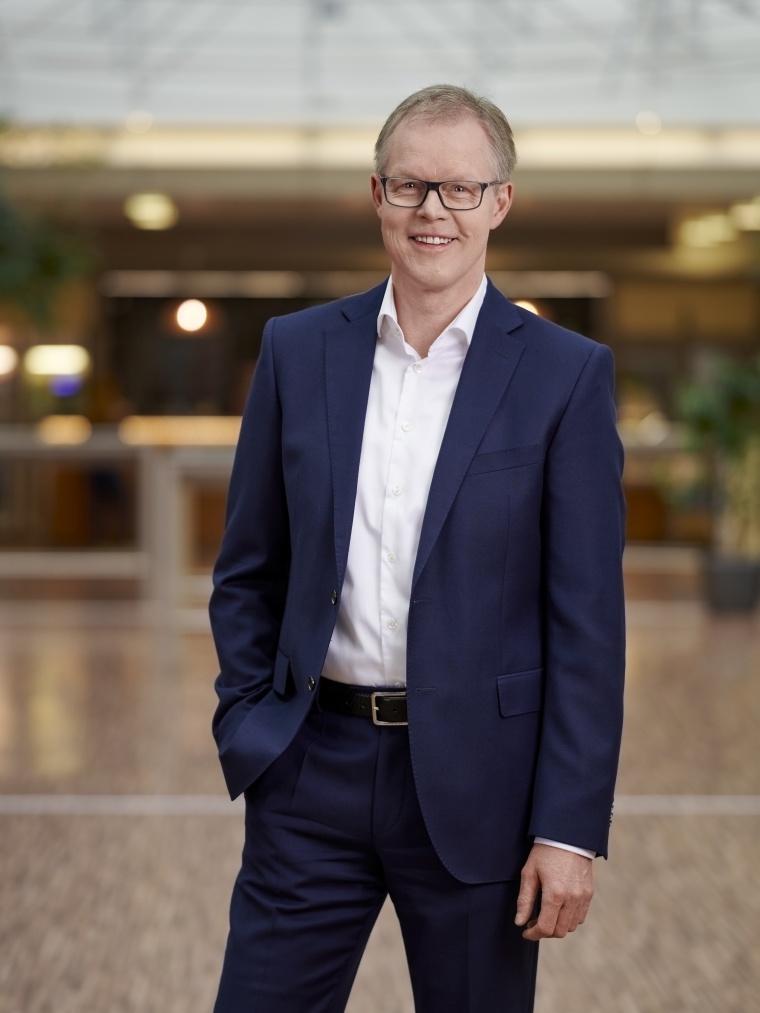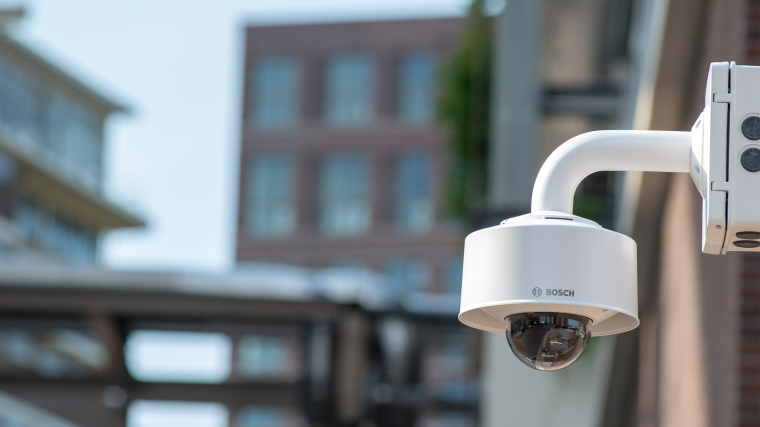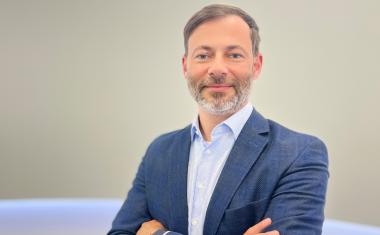Leveraging the Power of AI
In June, Thomas Quante took over as president of the Bosch Building Technologies division. Before that, he has already been a board member for the division with responsibility for the international system integrator business as well as for the fire alarm systems business within the global product business. Prior to that, Thomas Quante was heading the communication systems business unit of Bosch Building Technologies in Burnsville, USA. Since 2019, he is also an appointed member of the managing board of directors of the ZVEI association. GIT SECURITY had the opportunity to talk to Thomas Quante about his start as CEO and the future of Bosch Building Technologies within the security industry.


Mr. Quante, you started your CEO role in June 2021. What is your motivation each day when you drive to work?
Thomas Quante: First of all, as a supplier of security, safety and building technology, we are in a great market environment: the demand for safety, security, comfort and energy efficiency will continue to grow in the coming years. My motivation is to enable us to seize the opportunities this presents for our customers and our company and to continue our success story. With our products and solutions, we make a great contribution to the environment and help people feel safe and comfortable in commercial buildings and public spaces. We help protect human lives, buildings, and assets. That in itself is worth getting up for every single day. That’s what drives me – and our associates – to show a high level of commitment every day for our customers, partners, and our company. Bosch Building Technologies’ mission statement, “Building solutions for a better life”, reflects this excellently.

With Bosch, we have an owner at our side who supports us in our long-term strategy. As one of Europe’s largest foundations associated with a private company, a large part of operating profits flows back into the company to drive innovation. A yearly dividend goes to the Robert Bosch Stiftung and benefits social projects and thus the common good. Developing the business further on this basis is very motivating for me.
Last but not least, we have a great team across all divisions. A company’s people are what define it, and Bosch Building Technologies is no exception. Every day, I look forward to working with our associates, customers, and partners as well as exchanging ideas with my colleagues on the board of management.
What are your strategic priorities for the coming years?
Thomas Quante: When it comes to our strategic priorities, we make these assessments very close to the market. What are the trends, what are the current and future needs of our customers? These are the questions we consider every day.
The most important topics here are connectivity and digitalization. Against the backdrop of digital transformation, which has been strongly accelerated by the Corona pandemic, I see great opportunities for our company: through the interaction of Artificial Intelligence (AI) and the Internet of Things (IoT) – we are talking about AIoT here – we can generate added value for our customers with innovative, connected products and digital solutions. Driving these topics forward is a high priority for me. The topic of digital services also falls into this area. In our system integrator business, we have the direct customer interface and see exactly what the customer needs. This puts us in an excellent position to further expand our digital service offering in the coming years. To make this happen, we have also launched an internal accelerator program: ambitious, young employees act as intrapreneurs here and are 100 percent dedicated to building a new digital service offering.
Could you provide an example of one of your digital service offerings?
Thomas Quante: One example is the “HVAC Performance Analyzer” – a digital service for HVAC systems, meaning heating, ventilation and air conditioning systems. This ranges from analytics and monitoring solutions to IoT services that can improve the energy efficiency of the HVAC system.
Which brings me back to the subject of trends. There are other trends that are highly significant to me as they have a big impact on buildings as well as on the people who live and work inside of them. Here, the topics of sustainability and CO2 footprint are particularly important. Buildings need to become smarter in order to reduce CO2 emissions. There is also a growing need for comfort, safety, and security, with new working environments emerging. All this has an impact on buildings. We are already actively shaping this segment and continue to work on innovative products and solutions that generate added value for our customers and thus ensure greater energy efficiency, comfort, safety, and security.
In a nutshell: There are numerous exciting challenges for our company. And this leads to a large potential of the kind of innovations that we offer and continue to advance.
You already mentioned the term AIoT. Bosch is promoting this topic across all divisions, meaning the connectivity of physical products and the application of artificial intelligence. Can you tell us more about this with regards to Building Technologies and your progress here?
Thomas Quante: AIoT is a very important topic for the Bosch Group overall, as our cross-divisional collaboration attests. Internally, we call this “Leveraging the Power of Bosch”. Bosch employs 34,000 software developers worldwide. That alone shows the level of relevance. The catalyst for the group-wide application of AIoT at Bosch was the establishment of the “Bosch Center for Artificial Intelligence” in 2017. The center currently employs around 300 experts at seven locations working on more than 180 projects and supporting the business sectors in the development and application of AI. We at Bosch Building Technologies are also benefitting from this.
When it comes to security and building technology, we want to use AI to empower our customers to attain a better understanding of events and to be able to anticipate future events. This allows them to act predictively. Let me provide two concrete examples: in the area of “Video Surveillance as a Service” (VSaaS), we have developed a digital AI service in the cloud that significantly reduces false alarms from cameras. This allows security operators to better focus their attention on actual threats. Further, our “Aviotec” fire detection system is also a great example of AIoT. It provides video-based fire detection that uses AI algorithms to enable reliable early detection of flames and smoke.
Can you give us examples on how your customers benefit from these developments?
Thomas Quante: As part of our VSaaS offering, we are able to minimize costly false alarms in video security systems from Bosch or third-party providers. We can also better detect and identify people and objects. In addition, Bosch cameras can be configured and maintained fully remotely. So, all in all, VSaaS is an efficient and cost-saving solution that contributes significantly to more security. We are currently preparing for the 2022 launch of our VSaaS offering, including alarm verification in the cloud for perimeter protection as the first AI use case.
Thanks to AI algorithms, our video-based fire detection system Aviotec detects a fire directly at its source. In doing so, Aviotec works reliably within seconds. This technology is helpful, especially in high rooms, where it would take a long time for smoke to rise to the conventional detectors, as well as for highly flammable material such as pulp and paper. That’s why Aviotec ensures particularly fast and reliable fire detection in aircraft hangars, paper mills and warehouses where packaging material is stored, for example.
Overall, the more data available, the more AI can do. Hence, further advancements of AI will be provided with software updates. Our AIoT products and services thus receive new functionality remotely and thereby always stay up to date, serving the interests of our customers and the environment.
Bosch is an expert in the sensor business across all industries. Where do you see the strengths of video as a sensor and how do you use Bosch’s expertise in sensors for your division?
Thomas Quante: The Bosch Group has been developing intelligent video sensors for the automotive sector for many years, where they are currently used in driver assistance systems and automated driving applications. We apply the same technology in our security cameras, bringing artificial intelligence to applications for our customers. Thanks to the use of AI, video cameras are transforming into intelligent, context-sensitive sensors that can understand what they are seeing. The underlying AI algorithms developed by Bosch are key components, for instance in intelligent traffic systems, critical infrastructure, and the manufacturing industry. Far beyond mere security applications, our cameras can be used for intelligent queue management at airports, for example, ensuring shorter waiting times, compliance with hygiene concepts, and efficient personnel planning. The AI algorithms are already integrated into Bosch cameras out of the box. The data is processed directly “at the edge” – on the raw video stream of the camera sensor – and therefore does not require a central analytics server. This saves time and resources, thus ensuring an efficient and cost-saving solution.
As you already mentioned, Bosch Building Technologies is not only providing products but is also active as system integrator in certain countries. How do these two entities benefit from each other?
Thomas Quante: Compared to pure product providers, we enjoy the great advantage of having a direct customer interface and thereby understanding customer needs and use of our products and systems. Our product and our system integrator businesses work closely together. I plan to intensify this cooperation even further in the future.
Customer feedback, or user experience, flows directly into our product development. And I mean this in two respects: on the one hand, the needs of the end customer, and on the other hand, the needs of the system integrator. Through our system integrator, we are in turn also our own customer, allowing us to analyze our products in everyday use in the field across their entire lifecycle.
Our system integrator, on the other hand, also benefits from the optimized products. Take, for example, the important topics of “Ease of Installation” and “Ease of Use,” which are particularly important to us. Moreover, we are not only interested in product quality, but also in quality throughout the entire life cycle, in other words efficiency in operation and maintenance – which, by the way, also contributes to sustainability. This also includes backwards compatibility, which is very important for many customers. That is why we focus on the installed base at our customers in all our development projects.
I would like to mention another very important point: we are only active in selected regions with our system integrator business. However, our worldwide integration partners naturally also benefit from our own system integrator business, as they receive solutions from us that have already been tested in practical use.
There are a lot of interesting initiatives in the market regarding green buildings, sustainable building management and energy efficiency. What is your approach in this field?
Thomas Quante: Energy efficiency and sustainability are key topics for us. As you probably know, the Bosch Group has set itself ambitious goals – and has been climate-neutral since spring 2020 as the first multi-national industrial company with more than 400 locations worldwide.
We have made an important contribution to this climate-neutral position with the “Energy Platform” from Bosch Building Technologies. The Energy Platform is a comprehensive cloud-based application that uses a customizable management dashboard to analyze energy data in real time, helping to track and optimize energy consumption. For example, intelligent algorithms predict energy consumption and prevent peak loads. The Energy Platform is already in use at more than 120 Bosch plants and sites. Across all of these projects, up to 100,000 data points are currently being tracked to determine key figures that can be used to optimize energy consumption. For instance, our Bosch plant in Homburg, Germany, was able to reduce carbon dioxide emissions by 6,700 metric tons, or 12 percent, in the first two years after implementing the Energy Platform. The success story extends beyond the Bosch organization: the Energy Platform is currently also saving energy for external customers in more than 80 projects.
In addition to the industrial sector, the building segment itself accounts for a significant proportion of global greenhouse gas emissions, currently estimated at around 40 percent. This is where we come in. In recent years, for example, we have expanded our portfolio in the direction of building automation through acquisitions in the U.S. and Germany. For us, building automation represents a growth area, and we want to help our customers with intelligent solutions to become more energy efficient. We offer various solutions such as automatic presence control, intelligent indoor air conditioning and ventilation control, intelligent lighting and automatic sun shading control. They allow our customers to optimize their building operations and directly benefit from cost savings while conserving resources and making their buildings ‘greener’ overall.
We are currently encountering significant tailwind from political frameworks in terms of sustainability. Along these lines, the European Union’s “Green Deal” with the ambitious goals of reducing CO2 emissions unlocks opportunities that we are keen to explore. We are also strongly involved in ZVEI, the German Electrical and Electronic Manufacturers´ Association, where I am a member of the
Executive Board. In our new ‘Platform Buildings’, which is an initiative bringing together building-related sectors organized in the ZVEI, our experts from Bosch Building Technologies and Bosch Thermotechnology play key roles. Through the ZVEI, we not only foster exchange with colleagues from other sectors, but also encourage a dialogue between industry, politics, and other stakeholders regarding the requirements for modern and sustainable building technologies.
most read

When the Internet stumbles: Why DNS is important
When DNS fails, the internet stumbles-AWS outage proves resilience and redundancy are vital for digital trust

Is Your Venue Ready for Martyn’s Law?
Martyn’s Law demands stronger security by 2027. Is your venue prepared to protect and respond?

Safety and Security in an Emergency: How companies take responsibility with strategic personal protection and amok prevention
Personal protection & amok prevention: strategic concepts, training & responsibility for corporate safety and security

Airbus Defence and Space: Security as a strategic pillar of Europe's defense capability
Airbus Defence and Space protects sites, technologies and employees with modern security and cyber solutions - strengthening Europe's resilience in uncertain times

Assa Abloy's battery-powered Aperio KL100 secures lockers
Boost workplace security and operational flexibility by securing more than just doors.









